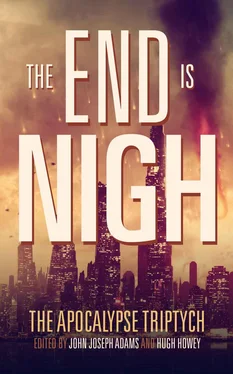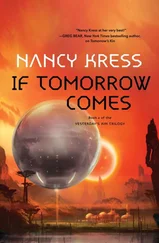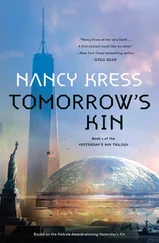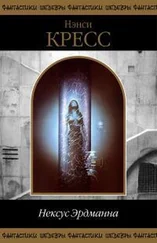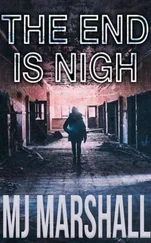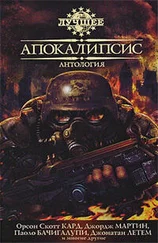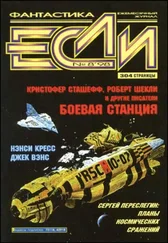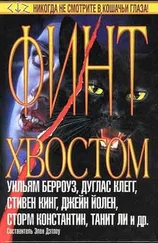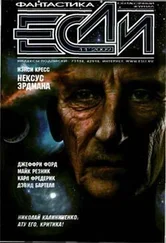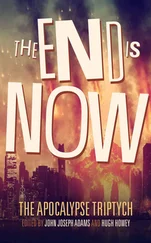Our Garden of Eden was a rectangular compound built out of old shipping containers, bullet-proof, impenetrable, and a poor substitute for my marble flooring and twelve-jet Jacuzzi. The kid was happier than I’d ever seen him, and he was doing a hero’s job of keeping the Children busy. They taught themselves to can food, forage for mushrooms, fire automatic weapons, build solar generators, suture wounds, identify poisonous snakes, milk goats and slaughter pigs—the internet truly was a wonder. As was the sight of all these accountants and housewives transforming themselves into mountain warriors, the kid at their fore, a pipsqueak Napoleon commanding his troops. They were disciplined in their mission, wild with abandon in everything else. Christian temperance gave sway to desire, to what the hell, to affairs and drunken revels, to one rumored orgy and two suicides. They honestly believed it was all coming to an end: Because I’d told them I dreamed it—and because the kid really had.
He’d stopped having nightmares, stopped asking questions. Now he was the one with the answers.
“It doesn’t scare you?” I asked him one night before turning out the lights. We’d abandoned privacy at the new compound, the Children sleeping dorm-style in their hollowed out shipping containers, but I still had the special privileges that follow from a direct line to the Lord. The kid slept on a cot beside me. I’d almost gotten used to the sound of his breathing, and his occasional muffled snore. It had been a long time since I’d slept beside someone long enough to recognize the rhythm of them falling asleep. “It really doesn’t scare you, the thought of it all ending?”
It scared the fuck out of me. The kid liked to walk me through potential apocalyptic scenarios—his version of a bedtime story. I fell asleep imagining the oceans rising, volcanic ash blotting out the sun, supergerms knocking out fifty million in a week. The kid taught me about nuclear winter, and in my dreams my skin sloughed off and my Children died a rainbow of deaths, atomized in a cotton candy puff of light, poisoned slow and steady by food and drink and acid rain, huddled in caves before flickering fire as the ice rose around them and the sun set on human life. There were nutcases with nuclear buttons and physicists messing with black holes; there were alarming seismic indicators and a supervolcanic eruption 40,000 years overdue. This was not to mention the potential damage of a solar storm, a not-so-great leap forward in nanotechnology, an asteroid impact, or what might happen when computers the world over gained sentience and turned on their masters. (That last was the kid’s favorite, and one of the reasons all computing devices on the compound were nearing their date with a sledgehammer.)
All that talk about reading the signs, and I hadn’t realized the signs were everywhere. The world was like one of those supersaturated solutions we’d played around with in chemistry class a thousand years ago—a class I only remembered, and only attended, because of my lab partner’s tendency to lean over the beakers and grant me a heavenly glimpse of her sacred mounds. They were solutions with more crap in them than they could bear, suspended in perfect balance, the dissolved particles invisible until you dropped one last, miniscule, harmless particle—and wham, liquid turned to crystal, just like that. I never got how it worked—was too busy plotting my way down Jenny Crowley’s v-neck—but I never forgot the sight of it, the possibility of instant transformation. Until the kid started sniffing around dark corners, it hadn’t occurred to me that we were living inside the beaker, waiting for someone to drop in one final speck of dust, make one tiny, irrevocable mistake. You didn’t need God for a scenario like that. You just needed bad luck or human idiocy, and those I believed in with all my heart.
The Children wouldn’t have appreciated the analogy; they had, on my advice, rejected the devil’s science, chemistry labs and all. Maybe that explained how they could be so unafraid.
“Why would I be scared when I know how much God loves me?” the kid said.
“And how much is that?”
“He brought me to you at exactly the right time, didn’t He? He saved me. And he must love you and the Children, too, because he brought me here so I could save you.”
You could tell the kid believed it, that it would be a good thing, surviving the end of the world. The Children, too, and that made sense, because it was a child’s belief, a child’s naïve assumption that life was always preferable to death, because they had animal fear of the latter and no concept of the hardships of the former. Children didn’t know what life looked like at its worst.
I knew, and I’d decided a long time ago that when the cancer came—as it comes to everyone in general and my family in breathtaking specificity—I’d toss myself over a bridge or swallow my weight in pills, anything to outpace that slow cancer crawl, the chemo and the shitting and the pain. These children dreaming of survival, that was an arrogance risen from having forgotten pain. I had only myself to blame—wasn’t I the one who’d returned them to innocence, replaced their hard truths with soft lies, taught them to hope? They say you can’t remember pain—the fact of it, yes, but the truth of it, the physical texture of agony? Gone and forgotten. Which makes it easy to forget that pain hurts, that the wounded life isn’t always worth living. I helped my Children forget, but I remembered for them, because someone’s got to. Remembering pain is the only way to avoid it.
Let’s say you save them, I wanted to ask the kid. What kind of life are you saving them for?
“He could have sent anyone to save you,” the kid said. “But God chose me .”
My son, the chosen one. My son, the sucker.
I tried not to think about it. Easier to imagine he was in on it with me, that we were running the same con, partners. Maybe I’d given him more than a thinning hairline after all; the kid was a born talker. I could take him with me when I left, I thought, bring him along to Miami Beach or, even better, postpone retirement just a little longer, teach the kid the ropes. Everyone likes a father-son act. Two thousand years, and it hasn’t gotten old yet, and maybe it wasn’t such a bad plan, trading in all my Children for one kid. Even if the end times were upon us, we weren’t dead yet.
It felt like an indulgence, imagining him into my future, almost indecent, a fantasy gone one step too far. But why should it have been? The kid was my kid—was parenting him the worst thing in the world? Wasn’t that the right thing, the natural thing, that I should step in and teach him how to be the right kind of man?
It was my very own bedtime story, and I kept on telling it to myself, right up ’til that very last day.
The night before Doomsday, the Children locked themselves into the compound to brace for the end. The kid got them all situated, set them to battle stations, a rifle in every hand, ready for anything. I waited until the last minute to break it to him, that one last, painful directive I’d gotten from the Big Guy: the Moses treatment, exiled from my hard-won promised land.
“I’m not going in there with you,” I told him, sotto voce —let him break the news to the Children, spare us all the tearful goodbyes. “Someone’s got to stay out here, guard the entrances, keep the infidels away, you know the drill.”
“But online they say—”
“Kid, this is coming from someone above Google’s pay grade.” I said it gently, and then I waited. For him to call bullshit on me, finally, or maybe just to act like a freaking kid for once, cry and sulk and cling to my leg or some such theatrics, because what kid wants to face the end of the world without his daddy. If he’d begged to come with me—or, hell, if he’d even asked politely, tossed out the suggestion—I’d have gone for it, walked him through some facts of life, then stuffed him into my own personal bug-out vehicle and gunned it. I would have found a way to explain things—he was just a kid, after all, and having bamboozled him once, how hard could it be to do it again—and it could have all played out like I planned, the father-son partnership, the two of us against the world, for all the time we had left.
Читать дальше
